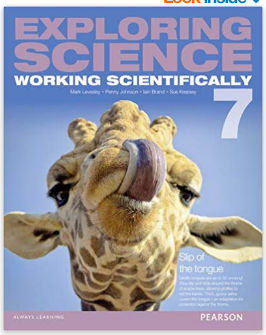Curriculum Information
Subject rationale – Why study the subject? What benefits does it bring.
Science is the area of study where students are taught the foundations for understanding the world through the specific disciplines of biology, chemistry and physics. Science has changed our lives and is vital to the world’s future prosperity. All pupils are taught essential aspects of the knowledge, methods, processes and uses of science. Pupils are encouraged to understand how science can be used to explain what is occurring, predict how things will behave, and analyse causes.
KS3 Curriculum Overview
Our aim at KS3 is to build a body of key knowledge and concepts in such a way that pupils are enthused about their science lessons. Practical activities are used as much as possible as they make a great impression on pupils and help trigger memories about the science involved long after the lesson has ended. We take every opportunity to enrich the understanding of the science disciplines. The flexibility offered in KS3 is taken on board to make content as stimulating and horizon-widening as possible, a broad and balanced curriculum is our main aim.
Years 7,8 and 9 are taught using the Exploring Science scheme.
In Year 7 pupils explore the following topics. Click on the below links for a summary of each topic:
Chemistry
Physics
In year 8 pupils explore the following topics. Click on the below links for a summary of each topic:
Biology
Chemistry
Physics
In year 9 pupils explore the following key stage 3 topics up to Christmas. After Christmas, they begin working towards their GCSE.
Biology
Chemistry
Physics
Year 9 GCSE topics:
Biology - GCSE Topic 1:key concepts in biology
Chemistry
- GCSE Topic 2: states of matter; methods of separating and purifying substances.
- GCSE Topic 1 : atomic structure; periodic table
- GCSE Topic 8: Earth and atmosphere science
Physics - GCSE Topic 2: motion and forces;
KS4 Curriculum Overview for Years 10 and 11
There are two pathways at Key Stage 4, which ensures that all students follow the course which is best suited to their needs and interests:
- GCSE Triple Science- where students study all three sciences and end up with three GCSE grades, one for Biology, one for Chemistry and one for Physics.
Classes studying Triple Science: X1 and X2
- GCSE Combined Science - where students study all three sciences (Biology, Chemistry and Physics) but end up with two GCSEs. They are awarded two GCSE grades based on their overall performance across all three science subjects.
Classes studying Combined Science: X3 and X4; Y1,Y2and Y3; W1 and W2
GCSE Exam board
The information below is correct from September 2023.
In year 10, 10X1 and 10X2 are following the AQA specification for Physics only. Click on the link below to access the AQA GCSE specifications:
https://www.aqa.org.uk/subjects/science/gcse/physics-8463/specification-at-a-glance
All other year 10 and year 11 classes are following the Pearson Edexcel specifications. Click on the link below to access the Pearson Edexcel GCSE specifications
https://qualifications.pearson.com/en/qualifications/edexcel-gcses/sciences-2016.html
KS4 Assessment Overview
Year 10
- November - assessments composed of GCSE questions
- May - GCSE paper 1 in all three sciences
Year 11
- December - GCSE paper 1 in all three sciences
- March - GCSE paper 2 in all three sciences
Click on the links below to find the GCSE specifications:
Revision Guidance
Revision Guides can be bought through Schoolcomms or directly from the science department. These are excellent resources for the students to be able to work independently at home.
Year 7-9
- Revision guides: £4
- Workbooks and answers: £6
GCSE Combined Science
- Revision guides: £6
- Workbook and answers: £7
GCSE Triple Science
Revision guide: £3.50
Workbook and answers: £4.50
Career opportunities
Chief scientific officer, doctor, nurse, weather forecaster, physiotherapist, teacher, science journalist, medical researcher, medical physicist, food scientist, arable famer, vet, wildlife photographer, oceanographer, waste disposal manager, landscape gardener, car designer, chemical engineer, mechanical engineer, sports coach.
Attachments/Links/Further Information
A useful website to help pupils learn their science work is: senecalearning.com
Enter KS3 science in the "Search for a course..." box:

You will then see all KS3 courses which you can revise.
Seneca can also be used to revise GCSE work too.
Year 7 and 8
Years 7, 8 and 9 are being taught our new science scheme of work using the Exploring Science publication and have access to the following textbooks in lessons:
the following textbooks in lessons:
Exploring Science: Working Scientifically Student Book Year 7
ISBN 9781447959601
Exploring Science: Working Scientifically Student Book Year 8
ISBN 9781447959618
GCSE
Useful GCSE site for flashcards, revision notes and past exam papers:
https://www.physicsandmathstutor.com/